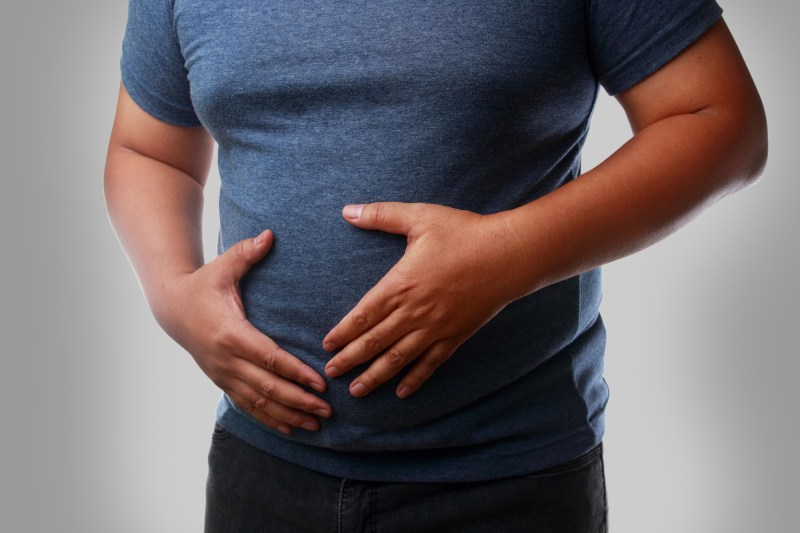Protein is among the essential nutrients your body requires to function properly, as it needs adequate amounts to build and repair muscle, promote hormone health, and more. As a trainer and nutritionist, I encourage all my clients to consume plenty of protein daily, whether they are trying to lose weight or build muscle. Protein drinks often come up in these discussions — so, are protein drinks good for you?
While you could meet your daily protein needs with whole protein-rich foods, these drinks can be a convenient way to add protein to your diet. In this article, we’ll explore the benefits of protein drinks, the potential side effects, and how to incorporate them into your diet. It is time to dive in!
Are protein drinks good for you?

Protein drinks are mainly made from protein powders. One serving could contain up to 30 grams of protein obtained from animal-based or plant-based proteins. They come in various flavors, and you can mix them with milk, water, or other liquids.
However, while they are beneficial, these protein drinks also contain added sugars, artificial flavors, and sometimes harmful chemicals. So, they are good if you need a convenient high-protein source, but try not to go overboard with your consumption or only rely on them for your protein for the day. You could also prioritize companies that use natural ingredients in their powders if you do want to have a shake daily.
What are the benefits of protein drinks?

Muscle growth
Protein drinks contain amino acids that will repair the micro tears in your muscles caused by exercise. These amino acids activate satellite cells, flooding the damaged area, repairing the muscle strand, and making it bigger. If this continues over time with exercise and adequate protein intake from protein
Recovery after exercise
Protein drinks support the muscle-repairing process. During exercise, your muscles are broken down, and proteins are used up, so your body needs to absorb and use proteins to repair and rebuild muscles. This will ease your pain after working out and prepare you for your next training session with optimal strength.
Nutritional support
If you cannot get enough protein from whole foods due to diet restrictions or poor appetite, protein drinks can be a suitable supplement. Additionally, for people looking to reduce their calorie intake for weight loss without cutting down on their protein, these
A 2020 study found that “consuming more protein than the recommended dietary allowance not only reduces body weight but also enhances body composition by decreasing fat mass while preserving fat-free mass in both low-calorie and standard-calorie diets.”
What are the potential downsides?

Allergies
One of the downsides of protein drinks is the risk of allergic reactions. Protein
Constipation and bloating
Protein drinks have also been known to cause digestive issues like constipation, bloating, diarrhea, gas, and abdominal pain, especially for people with pre-existing digestive issues or sensitive stomachs. To prevent this, you can gradually introduce the supplement into your body and see how you respond.
Dehydration
Eating a lot of protein can make you lose more water because your body gets rid of extra protein waste through urine, which means you might find yourself going to the bathroom more often. If you’re not drinking enough fluids, this could lead to dehydration. However, as long as you stay properly hydrated, a high-protein diet isn’t likely to dry you out.
A small study comparing the hydration levels of five endurance athletes who consumed low, moderate, and high amounts of protein shows that the more protein they consumed, the more dehydrated they became. So, if you are taking plenty of protein, you should complement it with enough water.
How to make protein drinks healthier

Consider being intentional about getting the most benefits from your protein drinks — don’t just add milk or water and gulp it down. The following are some ways to make your protein
- Reduce added sugars by choosing protein shakes without artificial sweeteners. You can add honey, bananas, or dates.
- Choose healthier liquid bases such as low-fat dairy, coconut water, or plant-based milk from soy, almond, or oat.
- Add fiber, such as chia seeds, oats, or flaxseed, for digestion.
- Enhance your protein drinks with probiotics, such as kefir, probiotic powder, or Greek yogurt. This is good for your gut health.
Tips for hitting your daily protein goal

For the general public, 0.36 grams per pound of body weight is the recommended dietary allowance for protein. However, this would be considered quite low for someone who exercises regularly. If you are in the gym often, aim for 1.6 to 2.2 grams per kg instead. These strategies could help.
- Always keep a high-quality protein drink or protein bar handy.
- Start your day with a high-protein breakfast that has at least 30 grams.
- Do not consume any meal without adequate protein.
- Add nuts, seeds, and legumes to your diet.
- Consume more fish and lean meat, such as chicken breast, tuna, turkey, and salmon.
Frequently asked questions

Is it good to drink protein shakes every day?
Drinking protein shakes daily is a convenient way to meet your daily protein needs unless you are intolerant, have digestive issues, or are sensitive to food.
Who should not drink protein shakes?
People with dairy allergies, diabetes, heart problems, kidney or liver problems, gout, or irritable bowel syndrome should not drink protein shakes. Also, if you are allergic to any other ingredients in the protein shake, such as nuts, you shouldn’t drink it.
Is it OK to replace breakfast with a protein shake?
Yes, it is OK to begin your day with adequate protein intake (like collagen or whey); protein shakes are the easiest way to do that. If you can, try to add other ingredients to your shake, like oats or fruit.




